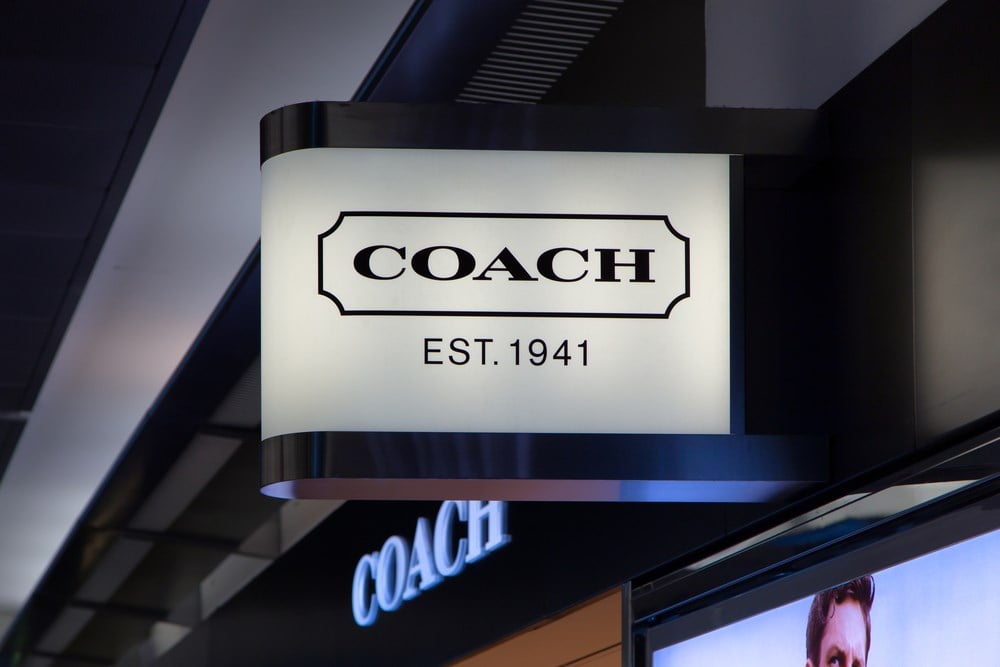
Shares of Tapestry Inc. (NYSE: TPR), owned by high-end luxury brands like Kate Spade and Coach, have declined nearly 20% in the past two weeks. The dire price movement came just after news leaked that Capri Holdings (NYSE: CPRI) was to be bought out by Tapestry, and some investors raised an eyebrow at the price tag.
An $8.5 billion offer was made from Tapestry for a company that generates roughly $3.3 billion in revenues, so the price-to-sales ratio is on the more affluent regarding a value proposition.
Perhaps this allocation made markets punish the stock. However, earnings results will show everyone why Tapestry looks more like a dip buying opportunity.
The luxury brand industry has been consolidating lately, and despite money becoming more expensive and scarce due to FED tightening, this industry is attracting some investors for the next bull cycle.
Markets seem to favor Tapestry's future, and analysts will likely be surprised when their conservative targets are exceeded.
Blowout Quarter
Inflation is a naturally occurring trend in economies that always spill over into different pockets. During the rampant inflation rates of 2022 in the United States, luxury-brand buyers have brushed off rising prices and kept on buying. Or so do Tapestry's second quarter 2023 earnings results show.
Despite net revenues growing by only 1% over the past twelve months, the company reported a massive 22% quarter-on-quarter sales growth across their global locations, including a 50% rise in China's market. Earnings per share reflected a lockstep advance of 22% over the year.
Tapestry stock has declined by 6.7% over the past twelve months, where there should have been (fundamentally) a mirroring rise to reflect the increase in EPS, an inefficiency gap that investors can begin to exploit.
The stock seems to be trading very cheaply today, or at the very least, management is suggesting that the price reflected today is a fraction of this company's actual value. This is indicated by a $270 million total returned to shareholders via dividends and share buybacks.
By buying back stock at these prices, management is broadcasting how optimistic they are about the future potential of where the stock may go, and investors should feel confident in potentially copying this behavior. Analysts' ratings are identifying a similar opportunity here.
Tapestry analyst ratings suggest a consensus 43.5% upside from today's prices. However, these numbers are still not reflecting today's quarterly results nor the potential earnings potential that may come from the Capri Holdings acquisition going through.
Management's investor day presentation will lay out their full-year 2023 figures and outlooks for 2024, which begin to put together the 'why' behind massive buybacks alongside double-digit analyst consensus upside—starting with record $3.88 EPS for the year, or a 12% advance from 2022, ending with even more bullish developments.
Bright Future, Brighter Stock
While the latest quarter saw a gross margin expansion of 3.5%, management points to further increases in 2024. EPS figures are also poised to rise due to cost efficiencies that may come from the Capri acquisition and other macroeconomic improvements surrounding freight and shipment costs.
Diluted EPS for 2024 is expected to end between $4.10 to $4.15, representing a 6% to 7% annual advance. However, these ranges may be on the lower end of what reality may bring, especially with inflation trends normalizing faster than expected and the earnings synergy promised upon the merger.
Outside of the recent selloffs sparked by the expensive merger price tag, Broader market sentiment suggests that Tapestry has become the industry favorite for mid-capitalization luxury brand stocks.
Comparing Tapestry to names like Signet Jewelers (NYSE: SIG) or even Capri, markets are leaving breadcrumbs that can lead investors to the promised land. The forward price-to-earnings ratio, which looks to value the next twelve months of expected earnings, can serve as a sentiment and upside potential gauge for investors.
The average forward P/E for this small set of luxury names is 7.9x multiple. In contrast, Tapestry is currently selling for 9.5x, which does the recent selloff heavily compress itself.
Some may argue that this only makes Tapestry the more expensive name in the subsector. However, this brings to light an entirely different issue.
By being willing to pay a 'premium' price for Tapestry relative to comparable companies, markets essentially say that the expectations and quality of future earnings are superior to competitors. Whether it is a stand-alone expectation or one that reflects the post-merger financials, growth cannot be denied, and neither can upside potential.




